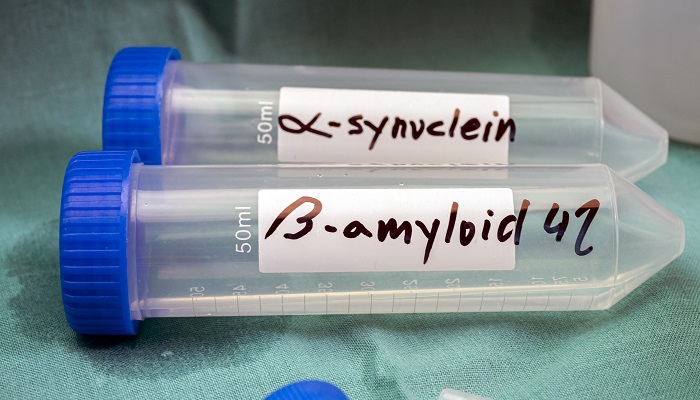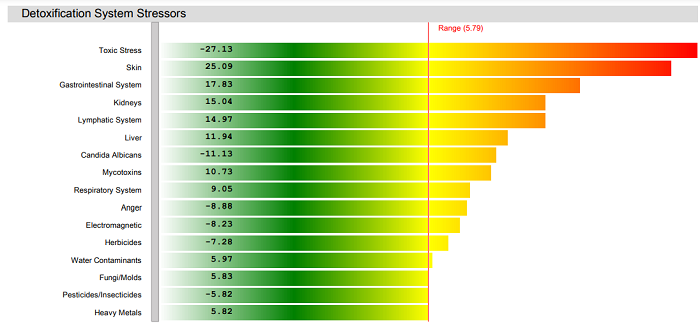Biomarkers can provide a variety of useful information about our health. However, biomarkers in the ZYTO library are different than traditional biomarkers that are discovered by testing bodily fluids such as blood or urine.
In this article, we’ll take a closer look at the difference between medical biomarkers and those found in the ZYTO library to see how they’re different, how they’re similar, and what they can tell us about our health and wellness.
What are medical biomarkers?
Medical biomarkers are biomarkers that can be found by analyzing samples of bodily fluids. Some of these include blood tests, saliva tests, urine tests, and cerebrospinal fluid tests. Biomarkers that are discovered with these tests can provide valuable information about the body’s physiological state.
For example, by measuring and analyzing biomarkers, healthcare professionals and researchers can gain insight into the presence, progression, or severity of a health issue, and make informed decisions regarding patient care.

There are different types of medical biomarkers, including:
- Diagnostic biomarkers – These biomarkers aid in identifying the presence or absence of chronic health problems. For example, the presence of specific proteins in the blood can indicate the presence of a particular health issue.
- Prognostic biomarkers – These biomarkers provide information about the likely course or outcome of a health problem. They can help determine the risk of chronic issues or recurrence and guide care decisions.
- Predictive biomarkers – These biomarkers help predict an individual’s response to a particular remedy or modality. They assist in tailoring approaches based on the likelihood of response or resistance to a specific intervention.
- Imaging biomarkers – These biomarkers utilize various imaging techniques, such as MRI, PET scans, or ultrasound, to detect anatomical or physiological changes in the body.
- Monitoring or surrogate biomarkers – These biomarkers are used to assess the progression of a chronic issue or the effectiveness of a remedy. They provide information on the biological changes occurring during the course of the health problem and the body’s response to interventions.
These and other medical biomarkers play a crucial role in advancing medical research, drug development, and personalized medicine. They help identify potential remedies and enable the development of more precise and targeted solutions.
What are ZYTO biomarkers?

The biomarkers in the ZYTO library are digitally encoded representations of actual parts and systems found within the body, which we call Virtual Items. Rather than discovering biomarkers by analyzing body fluids, these biomarkers are measured and analyzed based on how the body responds to them energetically. This is done by comparing the body’s baseline response, which can be thought of as a “normal” or “resting” response, to its response to a particular biomarker.
The concept of measuring the body’s energetic responses dates back to Dr. Reinhold Voll’s work during the 1950s. Voll discovered that the skin’s energetic characteristics reflected the state of the organ or body system associated with each acupuncture point. He also found that remedies affected the electrical properties of the skin when brought into proximity of the body. From his research, Voll developed a system of prescribing medicines that returned acupuncture points (and their related organs and systems) to a balanced energetic state.
Thanks to modern technology, we are now able to create virtual representations of actual items and measure how the body’s response to them rather than manually measuring each acupuncture point as Voll did. This process allows us to measure a wider variety of biomarkers in a short amount of time.
Types of biomarker Virtual Items that can be measured using ZYTO technology include:
- Organs and Glands
- Systems such as the Immune System
- TCM Meridians
- Teeth & Vertebrae
- Emotions
- Lifestyle areas such as Sleep & Nutrition
- Toxins
Medical biomarkers versus ZYTO biomarkers
As you can see, medical biomarkers and ZYTO biomarkers are similar in that they both provide valuable information about the body. Wellness professionals can use this information to make better decisions for each client’s health and wellness.
While medical biomarkers analyze bodily fluids, ZYTO technology measures the body’s galvanic skin response, which is then analyzed by the ZYTO software in relation to the biomarker Virtual Items. Both of these approaches have tremendous value and can be combined together for even greater insight into how the body is functioning, as well as which wellness options will be best for supporting overall health.
It should be noted that while medical biomarkers are diagnostic, ZYTO technology does not diagnose, treat, mitigate, or prevent any disease or medical condition. Instead, ZYTO provides wellness information in the form of biomarker responses and biologically coherent wellness products that may be beneficial in returning the body to a state of energetic balance.
 About Dr. Vaughn Cook
About Dr. Vaughn Cook
Dr. Vaughn R Cook is the Founder & CEO of ZYTO. An Oriental Medical Doctor (OMD) and licensed acupuncturist, he has worked in the complementary and alternative medical field for more than 30 years, specializing in applications that integrate Western and Eastern medicine.